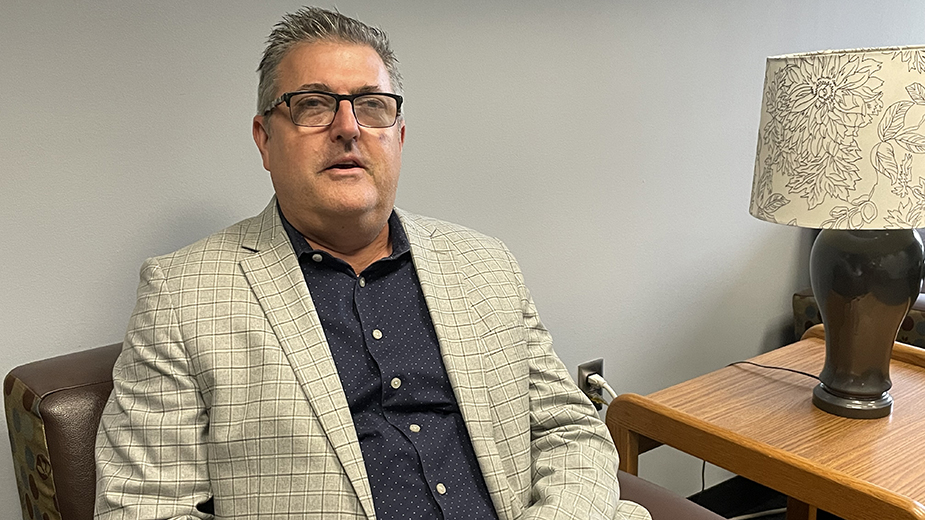YOUNGSTOWN, Ohio – To help ease the shortage of mental health and addiction counselors, Youngstown State University will pass along to students nearly $2.1 million from the Great Minds Fellowship program.
The money will help students who are studying social work or counseling to complete their degrees and enter the workforce.
More than 1 in 4 Ohioans suffers from anxiety or depressive disorder. And of those, one-fourth reported having an unmet need for counseling or therapy, according to the Kaiser Family Foundation.
The Ohio Department of Mental Health and Addiction Services reports a 353% increase in the demand for behavioral health services between 2013 and 2019.
The problem has been exacerbated in past years.
“There is a significant need with the public for mental health professionals,” says Jake Protivnak, YSU counseling program director.
“There is a need for children, adolescents, adults who are seeking counselors, and oftentimes there is a waiting list. Because there are just not enough community behavioral health professionals to meet the needs of the community. So, the purpose of this grant is to increase the number of community behavioral health professionals and clinical mental health counselors who are a part of that,” Protivnak says.
Jeffery Allen, dean of the Bitonte College of Health and Human Services at YSU, says several factors have led to a shortage of trained professionals in the mental and behavioral health care fields.
“The opioid crisis was alternatively termed a disease or disorder of disenfranchisement or despair,” Allen says. “Then more recently, the pandemic really brought to light additional factors of isolation, loneliness and despair in its own right.”
These factors heightened the existing problems caused by social media, especially with younger individuals, Allen says.
“I’m very grateful that this program has been created and they have marshaled it so quickly,” the dean says.
Through the Ohio Department of Higher Education, the Great Minds Fellowship Program will provide $10,000 grants for students within their final two years of completing their undergraduate or master’s degree program in a number of social work and mental health fields.
The grants are contingent upon students agreeing to perform their practicum internship at an approved Ohio community behavioral health care agency or working at any other approved agency for a year.
When the Ohio Department of Higher Education considered where to distribute the money, Allen says it looked toward programs like the ones offered at YSU. The university was awarded $2,097,936.
YSU is one of six universities in the state to receive more than $2 million from the Great Minds Fellowship. The money is earmarked to help students pursuing careers in social work, marriage and family therapy, mental health counseling, psychiatric/mental health nursing and substance abuse/addiction counseling.
At YSU, the programs that will benefit will be the undergrad and master’s degree programs in social work at the Bitonte College and the master’s degree counseling program in Beeghly College of Liberal Arts, Social Sciences and Education.
The university plans to operate the program in the fall of 2024 and needs to have spent all the money by March 2025.
Many of the social work and counseling students at YSU are vulnerable financially themselves, Allen says. They are often living in the trenches of the field, volunteering there, interning there and having a real understanding of the needs of the local community.
“Our students in turn come to us with a real servant’s heart,” Allen says.
“I feel really good about this being the right thing to do for a community and region that needs more and more mental health support and chemical dependency and addiction support. And I think our students are deeply engaged even during their training here to serve those populations.”
Vulnerable students may need not only tuition dollars, but also money for books, study materials, child care, transportation or a place to live while they are doing their clinical placements.
This grant program can help them wherever that need may be. Allen says the state has intentionally made the program more flexible than most.
“When we look at the true diversity of this community, about 50%
of the population is ethnically, racially diverse and yet in a lot of our health care fields we are not producing a diverse workforce,” says Allen.“And why that is so important – maybe more important for us than it is for business or even engineering – is that health care is so personal. If you don’t have someone who looks like you, the trust factor is just not there.”
The program will benefit students studying to become clinical mental health counselors through a master’s degree program, which is a natural fit for those with undergraduate degrees in psychology, education and criminal justice.
Protivnak says the master’s program takes two years of full-time study, with the first year spent on campus and the second year completing a practicum internship in the community, before earning licensure.
Getting through any program can take longer when students work to support themselves.
“My hope with this grant is it will allow them to complete the program faster,” Protivnak says.
Pictured at top: YSU Bitonte College dean Jeffery Allen is grateful for the grant program.
